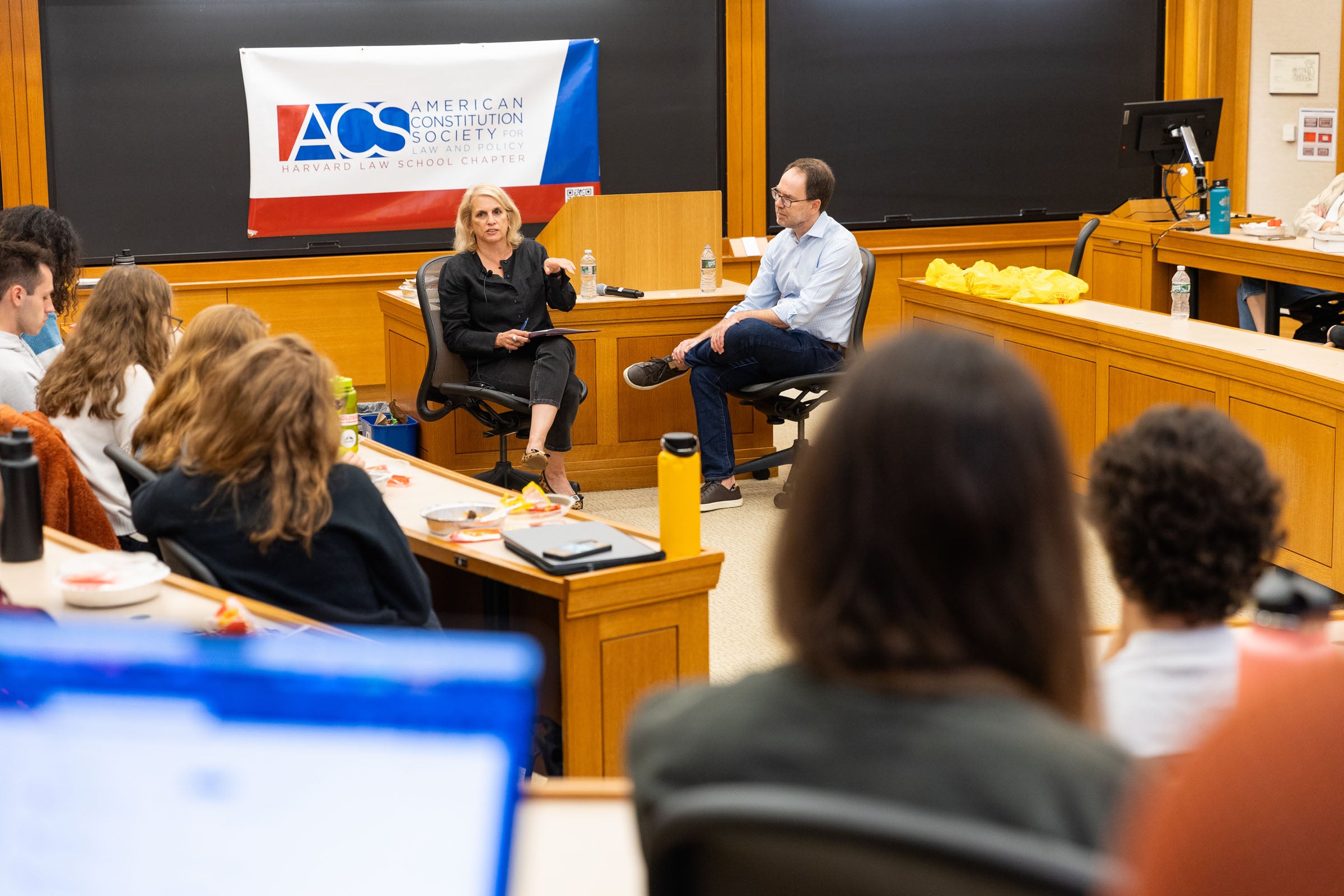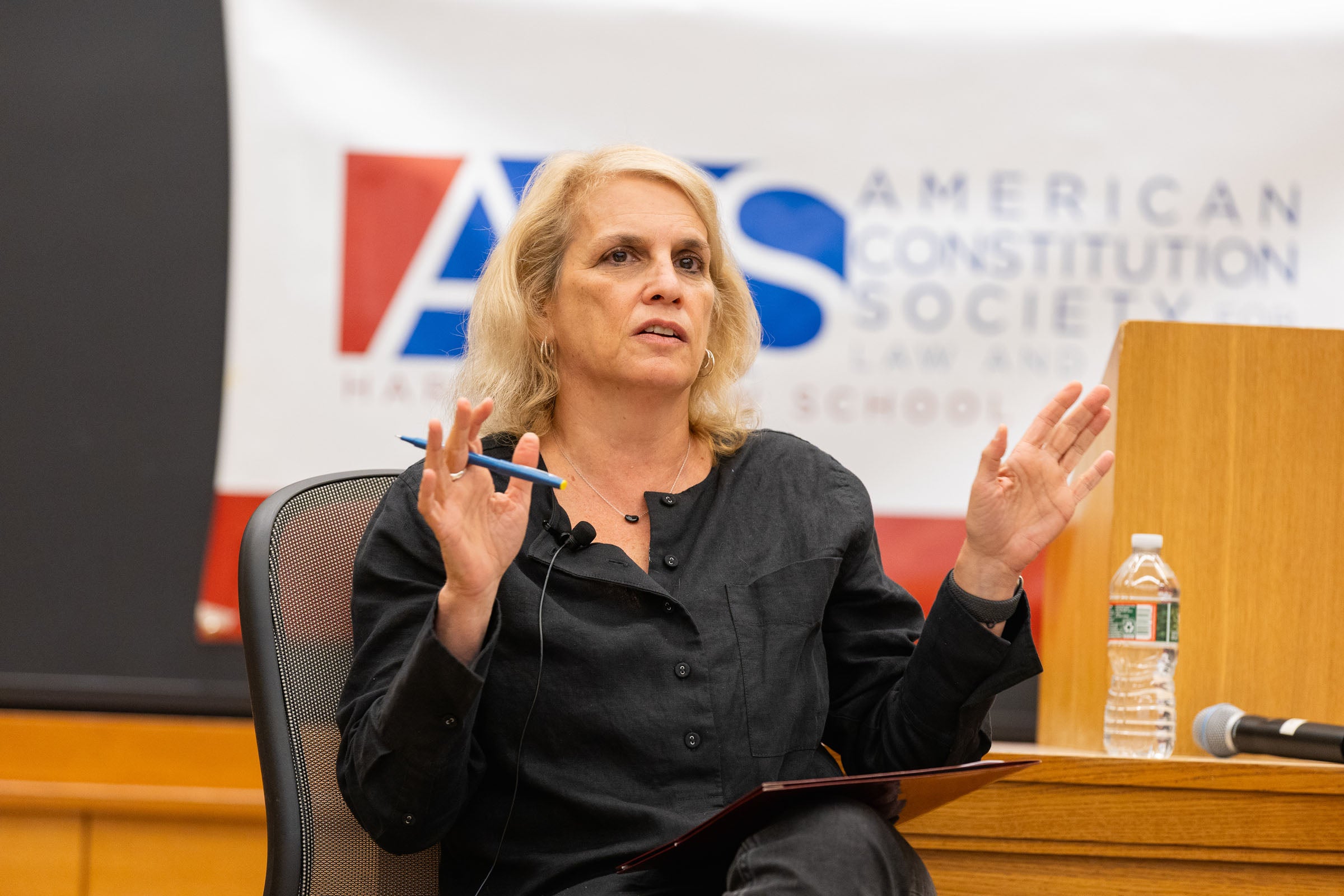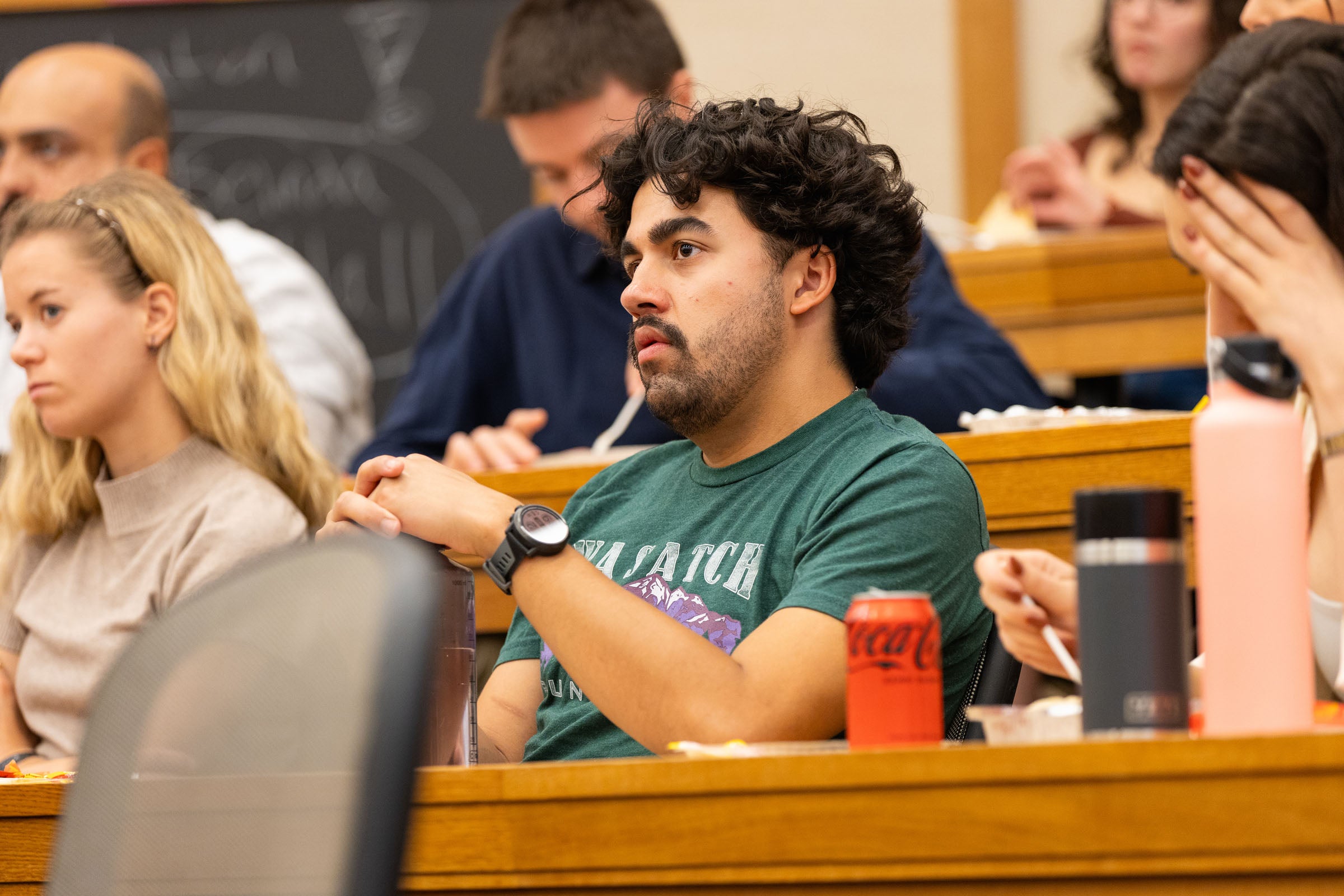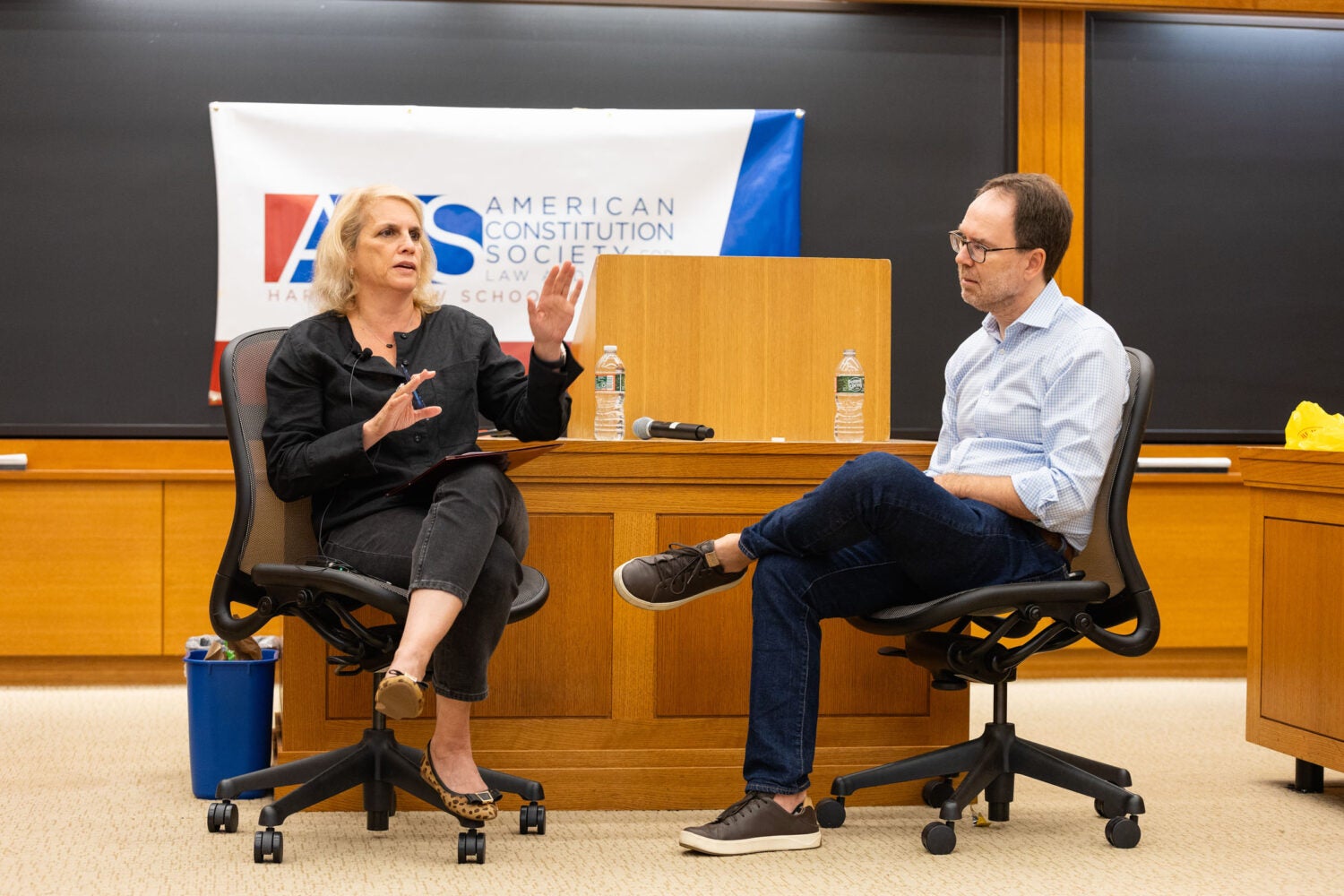The future of labor law is by no means assured. Due to recent Supreme Court decisions that do not favor workers’ right to organize, we are now facing “existential threats to our system,” according to Ben Sachs, Kestnbaum Professor of Labor and Industry at Harvard. Professor of Practice Sharon Block, a labor law expert who worked in both the Obama and Biden administrations, added: “There were always ways of interpreting the [National Labor Relations] Act for better or worse, but I’d never thought we’d be facing this kind of moment.”
Both professors spoke at “The Future of American Labor Law,” a panel cohosted by the American Constitution Society, the Women’s Law Association, the Labor and Employment Action Project, and the Center for Labor and a Just Economy, where Block is executive director and Sachs is faculty co-director.
Block began by underlining the importance of labor law. “If you take advantage of the rights that labor law provides, it’s an entree into having agency, a voice, a measure of control over everything that happens in your workplace. We should agree as a society that there is a floor that everyone is protected by, that we don’t want a society where people are making less than $7.25 an hour. But the law should protect more than a floor, and that’s what labor law is. It allows workers to exercise some standard of power and control that brings them up above this minimal standard of decency.”
One game-changing recent case, she said, was SEC v. Jaresky, decided by the Supreme Court last June. The Court held that the Securities and Exchange Commission had violated the Constitution by adjudicating a fraud claim through its own administrative law judges, as has normally been done, rather than through federal court. Under Jaresky, such claims now require a jury trial under the Seventh Amendment. Both speakers agreed that the potential impact on labor law is huge.

“What it did was open up attacks on the constitutionality of the structure of adjudicative administration agencies,” Sachs said, and noted that the National Labor Relations Act has previously relied on equitable remedies rather than jury trials. “We are at a moment that has been building for a long time,” Block said. “The way administrative law is changing is having a profound effect on the efficacy, the quality, even the existence of this structure that has been built since the New Deal.”
Other cases were cited for their impact on labor law. In Janus vs. AFSCME (2018), the Supreme Court decided that requiring public employees to pay union dues violated their First Amendment right to free speech; this has resulted in a decrease in union membership, some studies believe. In Starbucks v. McKinney (June 2024), which stemmed from a dispute over the termination of seven Starbucks employees, the Supreme Court held that the National Labor Relations Board must satisfy the traditional four-factor test for injunctions — a decision that will likely make it more difficult to claim injunctive relief for future violations of labor law. And in a still ongoing case, Trader Joe’s responded to worker disputes by taking the National Labor Relations Board to court, arguing that the board itself is unconstitutional.
These cases, Sachs said, represent the existential threats. Block added that in some states, the power of workers to bargain is in danger of being lost altogether. “I never thought we would be fighting over this, that it would become something to defend.”
“If you take advantage of the rights that labor law provides, it’s an entree into having agency, a voice, a measure of control over everything that happens in your workplace.”
Sharon Block
One positive development, Block noted, was the recent Massachusetts settlement by Uber and Lyft to grant significant benefits, including paid sick time and family leave, to its drivers who would still be classified as independent contractors rather than employees. There is also a pending ballot initiative that would allow them to create a union while remaining gig workers.
“We in Massachusetts are at ground zero,” she said. “It is a terrible thing that workers who are not classified as employees are [usually] excluded from the safety net, we as a society should not be tolerating that. In Massachusetts the state has a different pathway. … We also have this ballot initiative that would create a new kind of collective bargaining power for Uber and other drivers.”
In that sense, she suggested, their non-employee status was an unlikely advantage. “That could only happen because they’d been excluded or unclassified. If they were employees, the state of Massachusetts could not come in and say, ‘We have a better way of doing this.’” Still, she acknowledged, such a positive move is unlikely to happen in every state.


Responding to a student question, Block also found it a positive sign when Teamsters Union head Sean O’Brien made his appearance at the 2024 Republican convention, but cautioned against reading too much significance into it. “There is definitely something to the idea that people feel a certain anxiety about their place in the economy and where economic life is moving; that’s why we’re seeing more support for the labor movement than we have in decades. They are seeing that a union can give you more heft in what you have to say about your own future, and that’s evident in both parties. And the Republicans can read the polls as well as anyone else. But I don’t think it was a deeply meaningful embrace of the labor movement.” As for why she thought O’Brien even chose to appear, “Why not? He seems to believe that his members are more likely to vote Republican. Maybe he thought it was a way for him to hedge his bets on the outcome of the election.”
One student noted that 2025 graduates are already thinking about internships, and wondered where those interested in labor law should focus their efforts. “I think a lot of the action is going to shift to the states,” Block said. “At the end of the Obama administration I was involved in helping political appointees figure out where to go next, and there are so many interesting things happening in state government. The other side is that lawyers don’t only have to [work for the government]. There will be a lot of organizations trying to mobilize people to make the change they think is important, and lawyers will be needed in those organizations too. “It’s an interesting time for labor law, and there will be heavy lawyer needs in figuring all these questions out.”
Want to stay up to date with Harvard Law Today? Sign up for our weekly newsletter.
